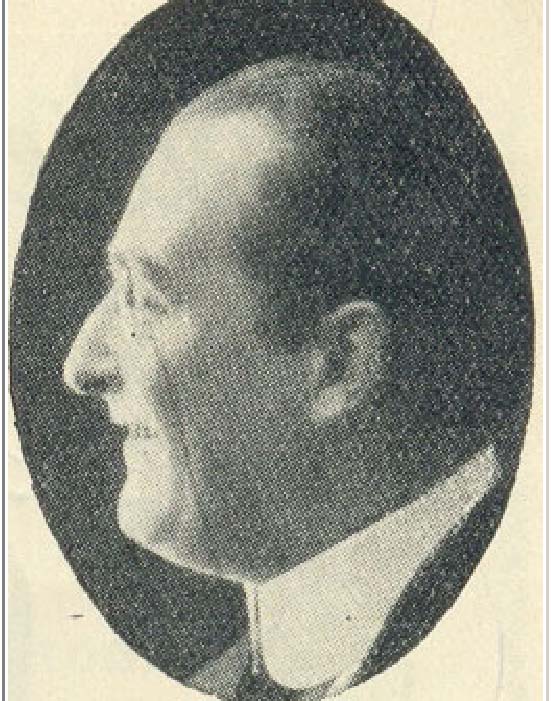- James W. Tate
Infobox Person
name = James W. Tate

image_size =
caption =
birth_name =
birth_date = 1875
birth_place =Wolverhampton ,Staffordshire
death_date = death date and age|1922|02|05|1875|01|01
death_place =Stoke-on-Trent ,Staffordshire
death_cause =
resting_place =
resting_place_coordinates =
residence =
nationality =
known_for =
education =
employer =
occupation = composer and producer
religion =
spouse =Lottie Collins Clarice Mayne
partner =
children =
parents =
website =
footnotes =James William Tate (1875–
February 5 1922 ) was a songwriter, accompanist, and composer and producer ofrevue s andpantomime s in the early years of the 20th century. Tate was born inWolverhampton , England and died inStoke-on-Trent , suddenly at the age of 46, as a result of pneumonia caught while traveling the country with his touring revues.Life and career
The son of a
publican , Tate was the eldest brother of one of the foremost operaticsopranos of the early twentieth century,Maggie Teyte . Originally intending to pursue a career in the church, he received early music training from his father, composing his first piece at the age of ten.Early career
In 1892, Tate went to the United States, returning in 1897 to accept a position as Musical Director at the
Carl Rosa Opera Company . Later, Tate served as Musical Director atWyndham's Theatre . In 1898 Tate went on tour as conductor with the dancer-singerLottie Collins , who was famous for introducing the song "Ta-ra-ra Boom-de-ay " to Britain. He married Collins in 1902, becoming her third husband. She was the mother of musical comedy starJosé Collins . In 1902, he managed an adaptation of the Parisian hit play "Coralie et Cie" at the Islington Grand in 1902 called "The Dressmaker". In 1903 he toured as conductor with the musical "All at Sea".songs during these years, many for his wife. He also had songs interpolated in shows, including "Sergeant Brue" (1904, "Instinct", "And so did Eve"), "The Belle of the Orient" (1904).
World War I years
The producer
Julian Wylie saw Tate and Mayne's act and formed a partnership with Tate. They began to specialize in creating and producing pantomimes and revues just before theFirst World War , including "I Should Worry" at thePalace Theatre (1913), the Victoria Palace's "A Year in an Hour" (1914), "Very Mixed Bathing" (1915), "Kiss Me, Sergeant" (1915), "The Passing Show" (1915), and "High Jinks" (1916). Tate co-wrote the successful "Samples" (1916) with Herman Darewski andIrving Berlin , including the hit song, "A Broken Doll." TheVaudeville Theatre revue "Some" included his successful song, "Ev'ry little while" (1916). Tate also wrote song hits such as "The rain came pitter patter pown," "A tiny seed," "Come over the Garden Wall," and "I was a good little girl till I met you" (all in 1914), and "Give me a little cosy corner" (1918).In 1916 Tate composed four songs, including three that became hits ("My life is love", "A bachelor gay am I", and "A paradise for two"), for inclusion in what became a record-breaking show, "
The Maid of the Mountains ". This commission arose at the suggestion of the show's star, Tate's step daughter José Collins, after initial previews indicated that the original score needed strengthening. Lyrics to these songs where supplied by his regular lyricistsFrank Clifford Harris and "Valentine" (Archibald Thomas Pechey ), who were to write the lyrics of many of Tate's songs throughout his career. "A bachelor gay" became one of the most popularbaritone songs in the British concert repertoire.Tate subsequently wrote the score for more revues and pantomimes, including the revusical "The Lads Of The Village" (1917), and another revue-musical, "The Beauty Spot" (1919), created for Regine Flory and produced by Parisian revue specialist P-L Flers at the
Gaiety Theatre, London .Later years
"), "Brighter London" (1923) and "Better Days" (1925).
In his last years, Tate continued to produce popular songs, such "Somewhere in France with you," "Give Me a Cosy Little Corner," but he never wrote for another "book" musical. Tate's sudden, early death in 1922 cut short a very productive career. The Wylie-Tate company continued through the 1920s and into the 1930s despite Tate's death , and Wylie continued to use Tate's music in these pantomimes, including several productions of "Cinderella", "Leap Year" (1924), "Mr Tickle M.P" (1924), "Who’s My Father (1924), "Turned Up" (1926), "Flyaway Peter" (1926, with
Sophie Tucker ), "The Apache (1927 at The London Palladium), "Dancing Mad" (1927), "The Yellow Mask" (1928), "Mr. Cinders " (1929) at theAdelphi Theatre and "The Good Companions" atHis Majesty’s Theatre (1931).Tate is buried at
Hampstead Cemetery .References
* [http://math.boisestate.edu/gas/british/composers/tate.html Biography of Tate]
* [http://www.its-behind-you.com/wylietate.html Profile of Tate, a selected list of the Wylie-Tate productions and extensive information about them]
* [http://www.musicweb-international.com/garlands/9th.htm Profile of Tate]External links
* [http://www.halhkmusic.com/sgtbrue.html Midi files to three songs that Tate composed for "Sergeant Brue" (1904)]
* [http://www.hyperion-records.co.uk/notes/67190.html Information about Tate and "The Maid of the Mountains"]
* [http://www.hyperion-records.co.uk/notes/67190.html Information about "The Peep Show"]
* [http://footlightnotes.tripod.com/20050319home.html Information about "Aladdin"]
Wikimedia Foundation. 2010.
